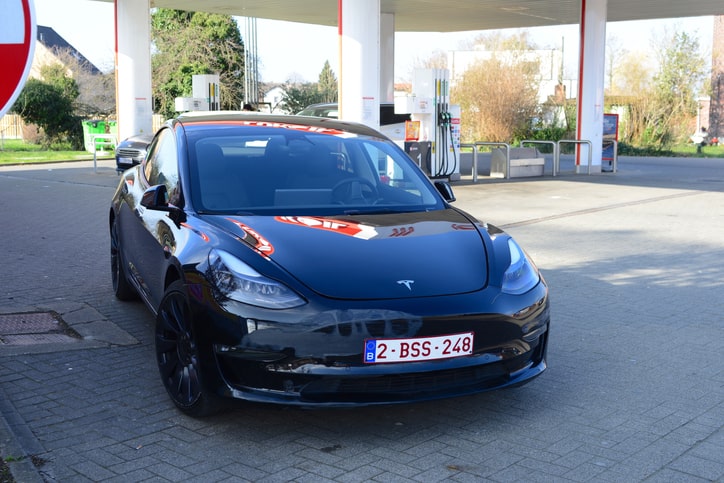The future of car insurance is rapidly evolving due to technological advancements. Innovations like telematics and AI are revolutionizing policy customization and claims processing.
As we steer into the future, technology’s grip on the car insurance industry tightens, promising profound changes. Smartphone apps and in-car devices now enable insurers to offer usage-based premiums, rewarding safe driving with lower rates. Artificial intelligence is streamlining claim settlements, reducing fraud, and enhancing customer service by providing instant, personalized support.
With the advent of autonomous vehicles on the horizon, insurers are also grappling with new models of liability and coverage options. These digital transformations are not only making insurance more user-friendly but also more cost-effective and efficient, benefiting both providers and consumers. The anticipation of fully self-driving cars requires novel insurance frameworks to address upcoming challenges and risks. This drive towards a tech-enhanced future is making car insurance more adaptable, secure, and tailored to individual driving habits.
Technological Disruptions Reshaping Car Insurance
The horizon of car insurance brims with innovation. Cutting-edge technology continues to transform the industry. Insurers now leverage these tools to offer superior coverage, more personalized policies, and streamlined customer service.
Telematics And Usage-based Policies
Telematics technology marks a shift in car insurance. This approach tailors policies based on driving behavior. Below are key points about its impact:
- Real-time data: Devices in cars track speed, distance, and time of day.
- Fair pricing: Safe driving habits lead to lower insurance premiums.
- Driver feedback: This helps improve driving and reduce accidents.
Ai And Machine Learning In Risk Assessment
Artificial intelligence (
AI) coupled with
machine learning revolutionizes risk assessment. Here’s how:
| AI & Machine Learning Application |
Benefits |
| Data Analysis |
Faster, more accurate policy pricing |
| Claims Processing |
Automated, error-free claims settlements |
| Customer Service |
24/7 support with chatbots and virtual assistants |
Impact Of Autonomous Vehicles On Insurance Models
The rise of self-driving cars is revolutionizing the car insurance industry. Autonomous vehicles promise to reduce accidents, change how liability is determined, and alter insurance premium calculations. This seismic shift requires an in-depth look at how insurance models will adapt to a world where cars drive themselves.
Liability In The Age Of Self-driving Cars
Assigning blame for accidents involving autonomous cars is complex. Here are key points:
- Driver vs. System: Identifying if a human or AI was in control is crucial.
- Manufacturer Responsibility: Fault may fall on the car maker if the system fails.
- New Laws: Legislation is evolving to address these new scenarios.
Insurance Premium Calculations For Driverless Technologies
Calculating premiums for driverless cars involves different criteria:
| Factor |
Impact on Premium |
| Vehicle Safety Features |
More features may lead to lower premiums. |
| Level of Autonomy |
Higher levels could result in reduced costs. |
| Data on Driving Habits |
AI provides precise data, potentially lowering rates. |
Insurance companies must adapt. They will study the data from autonomous vehicles closely. Rates will reflect the safety and reliability of the technology.
The Advent Of On-demand Insurance
The Advent of On-Demand Insurance marks a new era for car owners everywhere. This fresh take on coverage offers drivers a customizable, flexible insurance experience. Gone are the days of one-size-fits-all policies. Now, technology steps in, allowing policies to evolve with real-time needs.
Customizing Policies With Real-time Data
Customizing car insurance policies is now smarter and more responsive. Insurers use real-time data to shape personalized coverage. This data reflects how often you drive, where you travel, and even your driving style. With this information, companies offer policies tailored just for you. Active drivers might see different rates compared to someone who parks their car most days. Here’s what’s changing:
- Mileage-based premiums adjust based on the distance you travel.
- Driving behavior analytics reward safe drivers with lower rates.
- Instant policy adjustments happen as your driving habits change.
The Role Of Mobile Apps In Insurance Customization
Mobile apps are key players in the drive towards on-demand insurance. They offer easy access to policy management and claim filing. But that’s not all. Through apps, providers collect necessary data in real-time. This approach is effective and user-friendly. The table below highlights key app features:
| Feature |
Description |
Benefit to User |
| Telematics |
Tracks driving patterns |
Custom rates |
| Claim Submission |
File claims with a few taps |
Quick processing |
| Policy Management |
Change details instantly |
Full control |
These advancements give you the freedom to shape your car insurance like never before. Embrace technology, and
take charge of your car insurance with these innovative tools!
Cybersecurity And Data Privacy Concerns
As technology evolves, car insurance companies are harnessing data to offer personalized services. But this invites new challenges.
Cybersecurity and data privacy concerns are at the forefront of the digital transformation in car insurance. Consumers and providers alike must navigate this complex landscape with care.
Protecting Customer Data In A Connected World
In today’s connected world, the safety of customer data is paramount. Insurance companies collect vast amounts of personal information. This includes driving habits and vehicle performance data.
Secure data handling practices are essential to protect against breaches.
Technologies like encryption and blockchain offer layers of security. They keep sensitive information away from cyber criminals. Companies must also foster a culture of cybersecurity awareness. This reduces risks associated with human error.
- Encryption: Scrambles data into a code to prevent unauthorized access.
- Blockchain: A decentralized ledger that enhances the integrity and traceability of data transactions.
- Multi-factor authentication (MFA): Adds an extra security layer before users can access their accounts.
Regulations Shaping Data Usage In Insurance
Regulations play a crucial role in shaping how insurance companies handle data. These rules protect consumer rights and ensure data privacy.
| Regulation |
Description |
Impact |
| GDPR |
The General Data Protection Regulation governs data protection and privacy in the EU. |
Insurers must ensure data is processed lawfully and transparently. |
| CCPA |
The California Consumer Privacy Act allows consumers to know what personal data is collected about them. |
Companies must provide detailed information on data usage and offer opt-out options. |
| HIPAA |
The Health Insurance Portability and Accountability Act sets the standard for sensitive health data protection. |
Ensures personal health information is adequately protected while allowing the flow of health information. |
Compliance with these regulations is not optional. It’s a requirement. Providers must update policies regularly. They must also train staff to handle data according to the latest laws. This ensures trust between insurers and their customers.
Insurance Companies’ Evolution
The car insurance industry is witnessing
a pivotal shift. Long-standing insurers are transforming rapidly. They’re adopting new technologies to offer better services. This is critical to meet
modern consumer demands. Here’s how these companies are evolving:
Partnerships With Tech Startups
Establishing relationships with tech startups is key. Traditional insurers are doing this to innovate. They bring in
fresh perspectives and cutting-edge solutions. These partnerships lead to improvements in:
- Efficiency: Streamlining claims processing
- Customer Experience: Personalizing policies through data
- Risk Assessment: Using AI for precise risk predictions
By collaborating with startups, insurers leverage new tools and ideas. It enables them to create
user-friendly platforms and applications.
Embracing Change And Innovation To Stay Competitive
Change is the only constant, and insurance companies know this.
To stay competitive, they’re embracing innovation at every step. They are doing so through:
| Area of Innovation |
Impact on Car Insurance |
| Big Data Analytics |
Refines pricing models |
| Telematics |
Personalizes insurance rates |
| AI & Machine Learning |
Improves claim processing |
Such advancements allow insurers to offer
products that truly match customer needs. It’s a win-win, with more tailored services and better customer satisfaction.
Frequently Asked Questions For The Future Of Car Insurance: How Technology Is Changing The Industry
How Will Technology Change The Insurance Industry?
Technology is revolutionizing the insurance industry by enabling personalized policies, streamlining claims processing, and enhancing risk assessment with big data and AI. Customer experiences improve through efficient, automated service channels and apps. Insurtech innovations foster competitive, agile market strategies.
What Is The Future Of Insurance Industry?
The future of the insurance industry is likely to embrace digital transformation, integrating advanced technologies like AI and machine learning for enhanced customer experiences, personalized policies, and efficient claim processing. Sustainability and cyber insurance may also gain prominence.
What Is The Impact Of Digital Technology On Insurance?
Digital technology streamlines insurance processes, enhances customer experiences, and offers personalized products. Big data analytics powers precise risk assessments. Insurtech startups drive industry innovation, emphasizing efficiency and convenience.
Which Technology Is Creating Disruption In The Insurance Industry?
Artificial intelligence and machine learning are revolutionizing the insurance industry by enabling personalized policies and streamlining claims processing.
How Is Technology Impacting Car Insurance?
Technology is significantly transforming car insurance through telematics, artificial intelligence, online platforms, and automated claims processing, leading to more personalized premiums and efficient services.
Conclusion
The landscape of car insurance is rapidly evolving, thanks to technological advancements. As we’ve explored, telematics, AI, and machine learning are not mere buzzwords; they are revolutionizing policy pricing and claims processing. Driver behavior is now at the forefront of risk assessment.
The growth of autonomous cars and shared mobility options will further shift paradigms. Staying informed and adaptable is crucial in this ever-changing industry. Embrace the tech wave, and witness a more efficient, personalized, and cost-effective future in car insurance.




